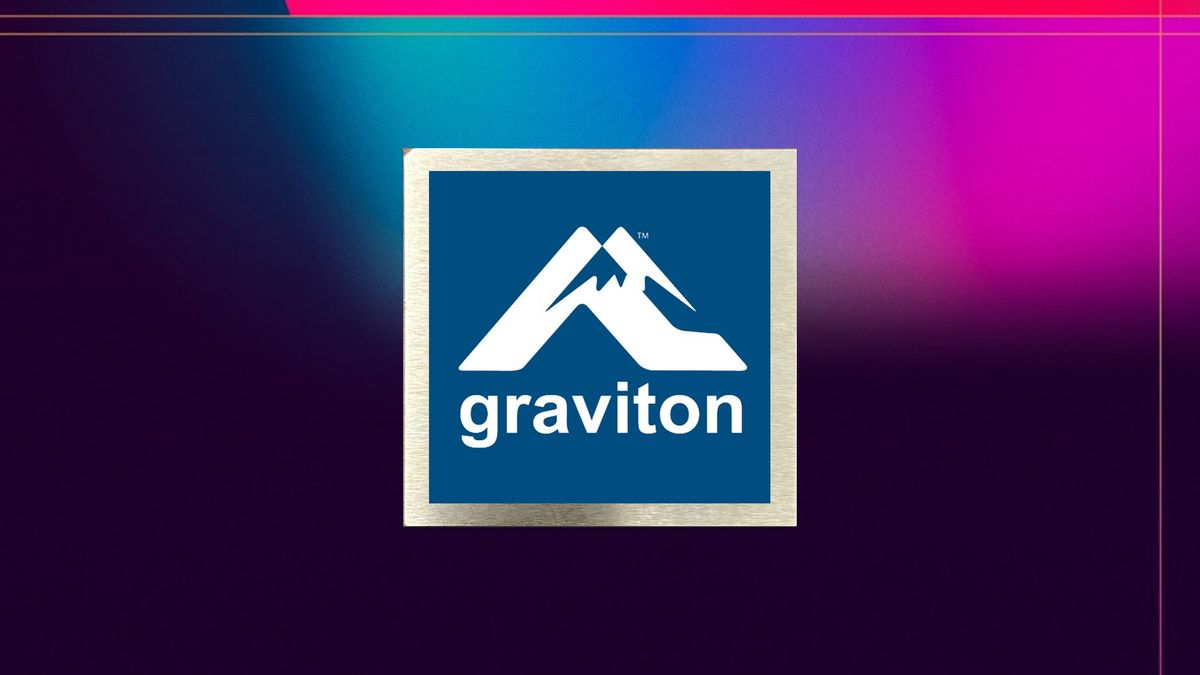Radu Jude is the internet’s favorite filmmaker. Or at least its most controversial.
In 2021, the Romanian writer-director bagged the prestigious Golden Bear at the Berlin International Film Festival for Bad Luck Banging or Loony Porn, a black comedy about a school teacher whose career is threatened when a hardcore porno she makes with her husband goes viral. Shot largely on the streets of Bucharest during Covid-19 lockdowns, the film documents the eerie, empty aesthetic of urban centers in the era and captures real citizens snarling and cursing at the camera and at the film’s lead actress. His follow-up, 2023’s Do Not Expect Too Much From the End of the World, nailed a different strain of post-Covid alienation. Its heroine, Angela (Ilinca Manolache), toils away 9 to 5 making shady workplace safety videos for a faceless multinational while moonlighting on TikTok, pretending to be a misogynist influencer (modeled after Romania’s own model of toxic masculinity, Andrew Tate).
Despite their regional particularities—unfolding across what he calls “the margins of Europe”—Jude’s films reflect an anxious feeling that is increasingly global: the derangement of being jacked into the internet, 24/7. With their mix of high intellectual pontification and vulgar low-humor, Jude has won over audiences at film festivals and art-houses who vibe on his absurd, caustic, somewhat doomer-ish wavelength, which vibrates somewhere between Jean-Luc Godard and Beavis and Butt-Head. With his latest film, Dracula, Jude seems intent on challenging, and even alienating, his most devoted admirers.
Opening in theaters October 29, Dracula takes the myth of the uniquely Romanian monster and feeds it into an AI generator—figuratively, and literally. The film is structured around a filmmaker (Adonis Tanta) tasked with making a blockbuster vampire film. Bereft of ideas, he provides an artificial intelligence app a series of prompts, and it spits out the various short (and not-so-short) films that comprise the actual movie. In one vignette, an actor in a pornographic stage production of Dracula is hunted down by a mob of tourists. In another, the Count plays as a maniacal boss overseeing a workshop of tech workers. There is plenty of blood and gore. And even more in the way of full-frontal nudity, animated and otherwise.
Clocking in at nearly three hours and abounding with actual AI images (of Count Dracula, of the Romanian warlord Vlad Tepes that inspired the famous vampire, and much, much else), the film seems almost deliberately enervating. In a climate where many in the film and creative industries see generative AI as an affront to both the medium and their careers, Jude’s use of the technology has proved contentious. Cheeky, satirical, obscene AI-generated images are, after all, still AI-generated images.
When he appeared via Zoom following a screening at the recent New York Film Festival, framed by an AI-generated backdrop, one skeptical cinephile snarked that Jude himself was officially “on fraud watch.”
Jude finds himself in the exact sort of knot his movies tend to draw tighter and tighter. His films have previously used mock-executions to explore the repression of historical memory, pornography to expose the cultural hypocrisy around adult sexuality, and misogynist posturing to grapple with the appeal of such postures. With Dracula, he weaponizes AI to damn AI? Or—as some purists believe—is stooping to use the technology at all a betrayal of cinema and the human creative spirit itself?
To figure this out, WIRED spoke to Jude, who appeared from France via Zoom, backgrounded by an AI-generated image of Donald Trump brandishing an AR-15 rifle while riding a cartoon kitty cat.
This interview has been edited for clarity and length.
WIRED: Who’s that behind you? President Trump?
Radu Jude: I used this image at a European festival, where I was asked to give an online talk. Now that I’ve been invited to discuss my film with some American friends, I thought I’d offer them something they’d appreciate. This image was shared by Trump himself, when he was campaigning as the defender of cats and dogs.
Dracula opens with this director who can’t think of any ideas for a Dracula movie. So he turns to AI. Is this a real temptation you’ve had as a filmmaker?
Not a temptation. But a problem. This project had many, many false starts. When ChatGPT appeared I had this idea of structuring the movie around that. I tried a few scenarios with ChatGPT, I tried to get it to make a Dracula porn film set in Auschwitz, and it rejected it. So I thought I could jump in and make things that the machine wouldn’t do. I was pretending that I am the AI machine. The other issue was the budget. We found a way to cut the budget was to use AI imagery. And we just did it. I felt entitled to do it, without being aware that in some more important culture industries, like in the United States, it’s a big issue. So of course the film is a critique of AI images. But it also came from a curiosity of how they work. For me, it’s a new tool. And like any new tool, you can use it or not use it.
Did you also feel entitled because you were satirizing AI images and even showing off how gross they are? I’m sure you know, or have at least discovered making festival appearances, that among certain people in the film industry, there’s a hard line with AI. They don’t want you to use it, even if you’re making fun of it.
It’s not the same attitude where I come from as it is in France, or the UK, or the United States. You know, Romania is a tiny country with a nonexistent film industry, basically on the margins of Europe. So there’s no stakes involved. There’s nothing to lose. But I respect any perspective on this. If you don’t want to use this, or even reject it, that’s fine. There is a resistance to something that is new and which is also, of course, problematic. I can understand the need to regulate AI, because there’s economic issues and aesthetic issues and even environmental issues. I’m aware of those things. But I’m trying to put it in balance. I decided to use it and take the risk and accept the backlash.
You seem to relish the backlash. Pissing people off a little bit doesn’t seem to bother you.
I wouldn’t phrase it quite like that. I would say it’s normal and healthy if a work of art provokes different kinds of reactions—including rejection. That’s the only domain in our existence where backlash, or conflict, gives way to good things. In politics it’s not like that. In war, of course, it’s not like that. In art, the exercise of engaging in something different—and even rejecting, or being violent against it, or accepting it with a certain gusto—is good. Every reaction is good. Every emotion is good, and there’s really no hierarchy to that. I think there’s a human need to be appreciated. But I also think that to be rejected is part of the appreciation, in a way.
I want to know about the process of actually generating these images. They’re slimy and pulsating and hypersexual. Again, I can’t think of a better word than “gross.” There’s an irony here, because AI images always aspire to hyperrealism. Did you have to work even harder to make them look so bad?
Yes. These images are made to seem more and more photorealistic. But there is always an element of kitsch to them or an element of really bad taste. There’s nothing beautiful. But if you go to the other extreme and accept the bad images, you might find some images that are not photorealistic but have a certain poetry because of their errors. You may have someone with three hands, or a person with four heads, or with genitalia in their chest. I always kept the wrong results because I found them nicer and poetical somehow. You have to really spend a bit of time and say, Oh my god, this is not only ugly and gross and slimy, but it is something that has a certain digital poetry. AI poetry, maybe it can be named. Maybe that’s a new genre.
There’s a vulgarism, or a primitivism to it.
Yes, a primitivism.
It’s weird to ascribe that to a machine that’s not thinking. But they have that quality. Like they’re the product of a monstrous mind.
It’s true. But the fact that it’s generated by a machine doesn’t change it that much. Because even a photograph is generated by a machine. But of course it’s a different ontological thing.
About those ontological differences: You’ve talked before about the “empire of images,” where great works of cinema and Renaissance masterpieces and TikTok videos and AI slop all belong to the same domain. They’re all, in some way, the same. What do you mean by the “empire of images”?
Maybe I was wrong to say they’re the same. Of course there are differences. The composer John Cage is a big influence on me. He had the same attitude toward sounds. [He believed] there are no bad sounds. Everything is music. If you listen to the rain, it’s music. If you listen to traffic, it’s music. To discover that sounds are beautiful like that, I think you need a certain openness. So that’s what I meant. Not that they’re all equal. And I think that’s another way to enjoy life. Instead of saying, “Oh there’s so many ugly things! Where is the beauty in our world?!” If you consider all those things as worthy of interest, then I think we have a better enjoyment of life.
In the film, one character quotes the line from Marx’s Capital, comparing capitalism to vampirism. Do you view AI technology as similarly vampiric, taking the creative labor of other artists and sapping it?
I think it’s the perfect metaphor for AI. And one of the big problems that this technology has. I used AI for this film because it seemed like the perfect match.
So you’ve done Dracula, you’ve experimented with AI. Is this technology you think you’ll use going forward? Or is it like Oppenheimer with the atomic bomb: You’ve used it once so that nobody shall ever use it again?
It depends. I understand there is a backlash in the United States. I’m in the middle of a new film right now that doesn’t use a second of AI. But I’m also finishing the postproduction on a short film that uses an AI-generated voice reciting some Dante poems. So, I’m not rejecting it. I don’t have an intention for my next project to use it, necessarily. But if I find I need to do it, I will do it, with no problems.
Here there’s a great suspicion about it. People here are very vigilant about AI.
And they should be! There are higher stakes. There’s a lot of money involved, millions and billions. It's a huge industry, and you have to defend it. Come to Romania! You can do it, no problem.

 1 month ago
33
1 month ago
33




 English (US) ·
English (US) ·